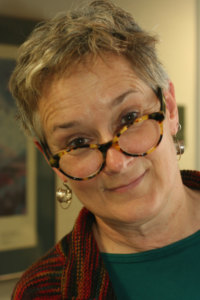Often the new empiricism in law takes the form of advice from social scientists to lawyers. In this interesting post, Professor Michele LaVigne turns the New Legal Realist tables, and gives social scientists advice on the kind of information that is needed by lawyers involved in trying to make the legal system fairer:
Happy Birthday Gideon
For a brief while this year, the news turned its attention to the state of indigent defense in the United States. First, Gideon v. Wainwright turned 50 and we heard that Gideon is a dream unfulfilled or deferred, or at the very least, it’s an unfunded mandate and in many jurisdictions it looks like one. Then came the sequester and no surprise, federal defender services took the first hard hit, with federal defenders facing either lay offs or furloughs that will drag on for who knows how long. (There is no corresponding shortfall for federal prosecutors)
So what does this mean that so many poor people have inadequate representation in court? The media – books, newspapers, 60 Minutes – have long told us stories about burned out lawyers and high caseloads. And we know in our gut what it means: the lawyer with too many cases who misses deadlines or who talks to her client for the first time five minutes before trial begins, or who just loses track; the lawyer whose “compensation” is so small that it works out to less than minimum hourly wage; the lawyer who shouldn’t really be a lawyer in the first place.
But what does it really mean? It turns out there is surprisingly little data about what defense services – good or bad — actually look like. In her book Ordinary Injustice in which she depicts a criminal justice system mired down in substandard performance by everybody, Amy Bach decries the lack of data: “Ordinary injustice often seems like an unfortunate collections of facts until an underlying pattern is revealed. Compounding the difficulty is the fact that the pattern is frequently invisible.”
As the stories in Bach’s book so painfully demonstrate, inadequate defense for indigent defendants is one of those unfortunate collection of events. It’s also a pattern, but for all of the stories, we still don’t really know how or why. The appellate process, and Strickland v. Washington ineffective assistance of counsel certainly does not shed any light. That standard has much more to do with finality than with the quality of representation. One of the best descriptions of the Strickland standard comes from Prof. Michael O’Hear at Marquette Law School who has called the standard “little more than a doctrinal placeholder—something that had to be recognized in principle as a possible basis for postconviction relief in order to prevent the right to counsel from too obviously collapsing into a meaningless formality, but that ought in practice to be discouraged through strong presumptions against the defendant.
Bach calls for social scientists to come in and take a systematic hard look at the court and lawyer performance. For the study of defense attorneys, she recommends looking through files to determine among other things “a defense attorney’s distribution of time spent with clients and investigating cases.” She envisions this type of information revealing, among other things, the number of times each defendant met with his attorney and whether tax dollars spent on indigent services was money well spent.
I also recommend that social scientists actually sit down and talk to lawyers, a lot of lawyers. Quantitative measures can only tell us so much, especially since outcomes in criminal law are influenced by a seemingly infinite number of variables. By talking to lawyers, social scientists can get behind the time records and find out how time spent with a client matters. They can learn how cases are triaged (because they are) and the extent to which litigating motions and trials matters. If anybody asks, most defense lawyers will gladly describe the pressure from prosecutors and judges and how that affects their choices. They will tell you about the cost benefit analyses they make every day, not only in terms of their own interests, but the interests of their clients.
Defense attorneys are experts in what it means to be a defense attorney. By talking to them, we can get behind the files, transcripts, and off the record negotiations. Bach’s goal is transparency, but genuine transparency will be elusive without solid qualitative information. And that can only come from one place – the lawyers themselves.

